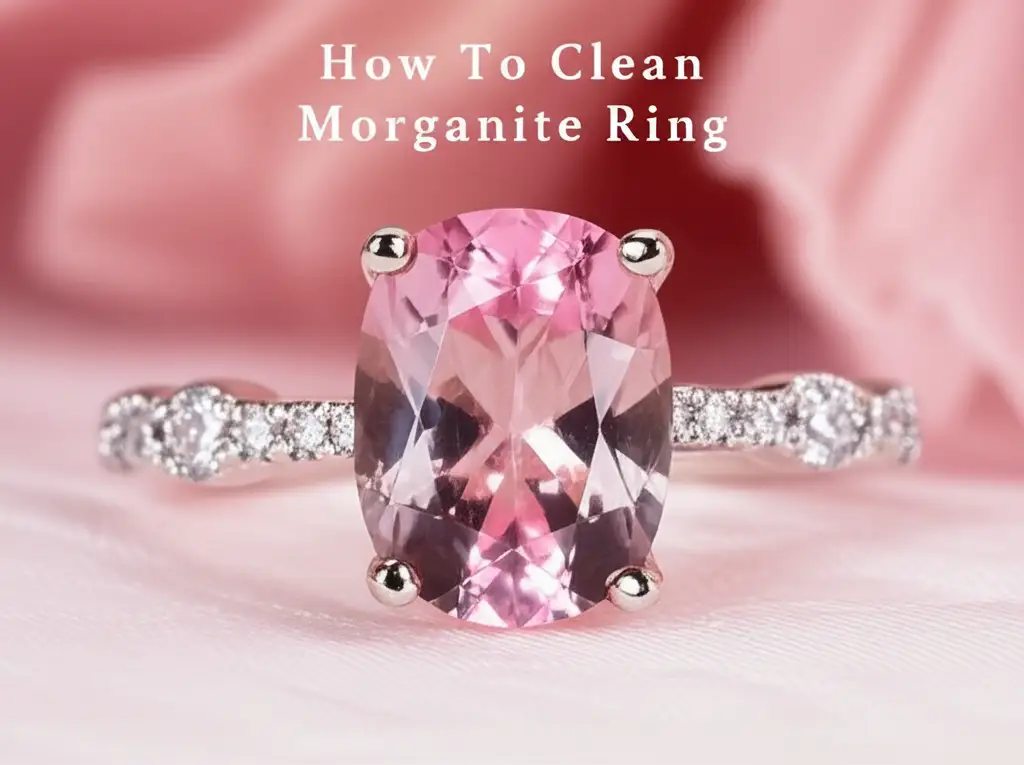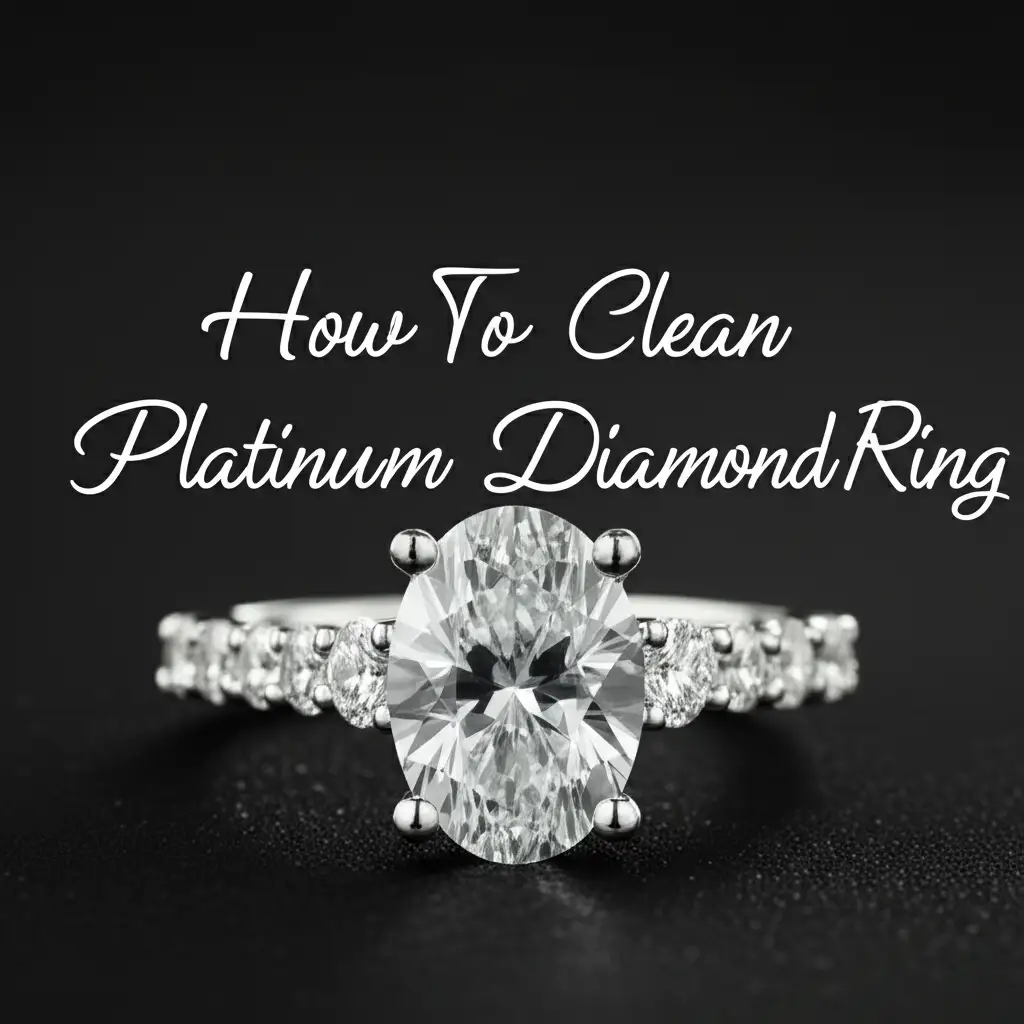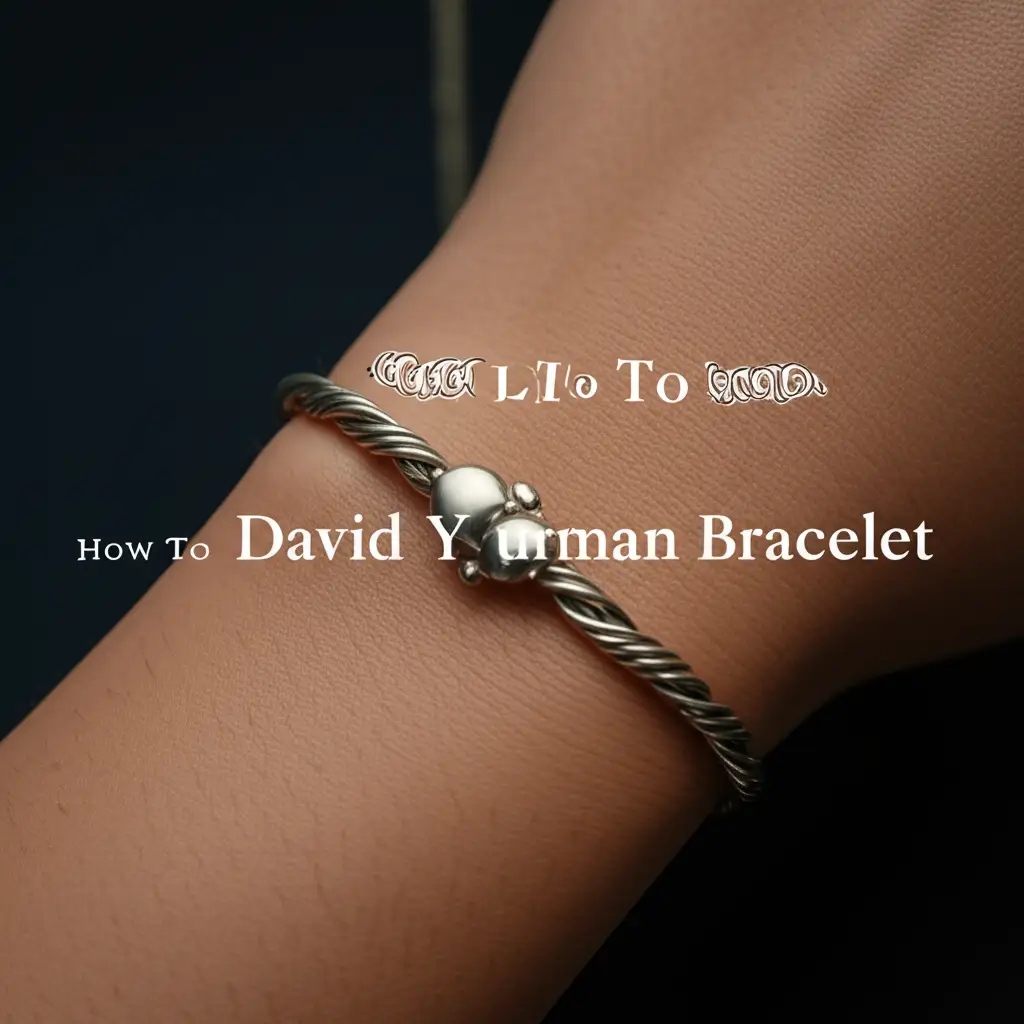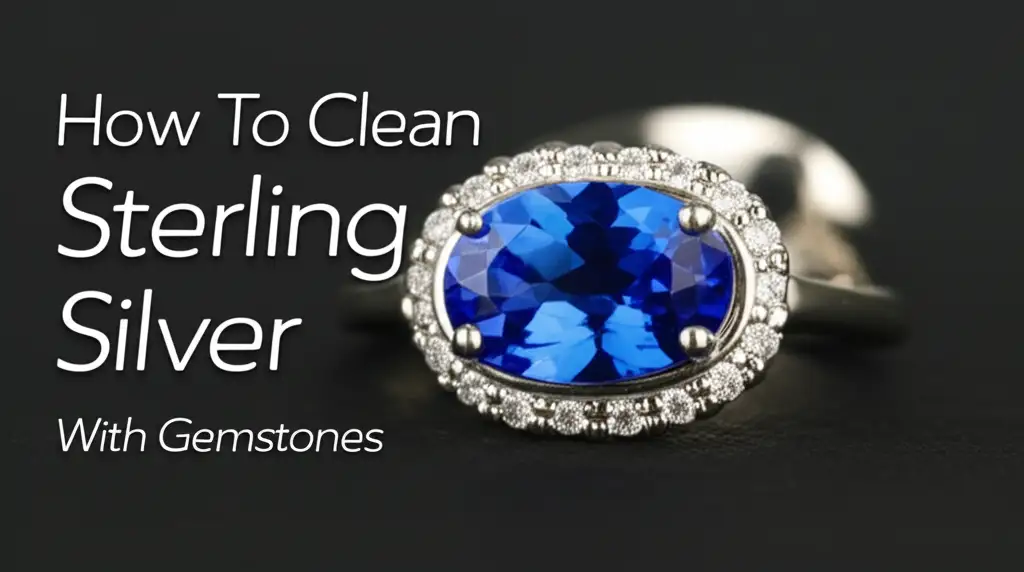· Jewelry Care · 14 min read
How To Clean Rings With Stones
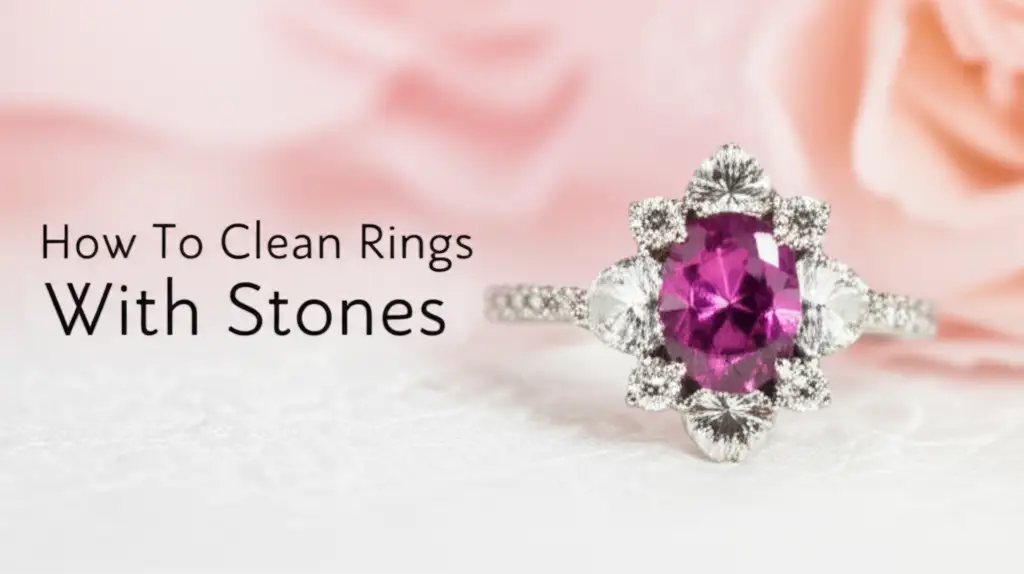
Make Your Gems Sparkle: How To Clean Rings With Stones
Do your treasured rings with stones look dull? Over time, dirt, oils, and soap residue build up on your jewelry. This makes your gemstones lose their shine. I know how important it is to keep your precious pieces sparkling.
This article shares simple, safe ways to clean rings with stones at home. We will cover choosing the right tools and solutions. You will learn specific methods for various stone types. I will also provide tips for daily care and when to seek professional help. Your beautiful rings will shine again.
Takeaway
- Identify your stone and metal type before cleaning.
- Use gentle cleaning solutions like mild soap and warm water.
- Avoid harsh chemicals or abrasive materials.
- Clean delicate stones separately with specific care.
- Dry rings thoroughly after cleaning to prevent water spots.
To clean rings with stones, use a gentle approach. Mix mild dish soap with warm water. Soak the ring for a few minutes. Gently scrub with a soft brush, like a toothbrush, around the stone and setting. Rinse well under cool running water and pat dry with a soft, lint-free cloth.
Identify Your Ring’s Gemstones and Metal Type
Before you begin cleaning any ring with stones, you must know what your ring is made of. Different gemstones and metals require different care. Using the wrong cleaning method can damage your precious jewelry. I always check my ring’s materials first.
Some gemstones are very hard, like diamonds, rubies, and sapphires. They can withstand more robust cleaning methods. Other stones are soft or porous, like opals, pearls, emeralds, and turquoise. These stones need extremely gentle care. Harsh chemicals can damage their surface or change their color. For example, chemicals can etch the surface of pearls. They can also dry out opals, making them crack.
The metal of your ring also matters. Gold and platinum are durable. Silver can tarnish, and some cleaning solutions for silver might harm certain stones. For instance, some silver polishes contain abrasives. These abrasives can scratch delicate gemstones. Knowing your metal type helps you choose the right cleaning products. You can learn more about cleaning silver rings with stones by checking out our guide on how to clean silver rings with stones.
It is also important to identify any special treatments on your stones. Some emeralds or rubies undergo oiling or fracture filling. These treatments improve their appearance. Harsh cleaners can remove these treatments, changing the stone’s look. If you are unsure about your ring’s materials or treatments, consult a jeweler. They can provide expert advice. This first step protects your investment.
Gather Gentle Cleaning Solutions and Tools
Once you know your ring’s materials, you can gather the right cleaning supplies. I prefer to use simple, gentle solutions first. These are usually safe for most rings with stones. You likely have many of these items already at home.
The most common and safe cleaning solution is mild dish soap. Choose a brand that is free of dyes or strong perfumes. These additives can leave residues or even harm sensitive stones. Mix a small amount of this soap with warm water in a clean bowl. Avoid using very hot water, especially for rings with delicate stones like opals or pearls, as extreme temperature changes can cause damage.
You will also need a soft brush. An old, soft-bristled toothbrush works perfectly. Make sure it is clean and used only for jewelry. Its small bristles can reach tight spots around the stone. Avoid brushes with stiff bristles, as they can scratch the metal or stone. A soft cloth is also essential for drying. Choose a lint-free microfiber cloth or a soft cotton cloth. This prevents new fibers from sticking to your clean ring.
Some people consider using baking soda for cleaning. Baking soda can be a mild abrasive for certain cleaning tasks. However, when you clean rings with stones, especially softer ones, baking soda might be too abrasive. It can scratch the surface of softer gemstones or precious metals. For specific guidance on using this method, you might look into our article about how to clean rings with baking soda. I typically avoid it for rings with stones.
Other tools you might consider are a small, clean container for soaking and a strainer. The strainer helps you rinse the ring without fear of dropping it down the drain. Always use clean tools and solutions. Dirty tools can transfer grime back onto your ring.
Step-by-Step Gentle Cleaning Method for Most Rings
Now that you have your supplies, I will walk you through the cleaning process. This general method works for most durable gemstones like diamonds, sapphires, and rubies. Always remember to be gentle. This method protects both your stone and its setting.
First, prepare your cleaning solution. Fill a small bowl with warm water. Add a few drops of mild dish soap. Stir the water gently to create a soapy solution. Make sure the water is warm, not hot. Very hot water can be risky for certain stone types.
Next, place your ring into the soapy water. Let it soak for about 10-20 minutes. Soaking helps loosen dirt and grime. This makes it easier to remove from the stone and setting. For very dirty rings, you can extend the soaking time slightly. However, avoid extremely long soaks, especially for rings with delicate settings or glue-set stones.
After soaking, gently scrub the ring. Use your soft-bristled toothbrush. Focus on the back of the stone where dirt often collects. Dirt on the underside of a stone prevents light from entering, making the stone look dull. Also, gently brush around the prongs and any intricate details. Be careful not to dislodge the stone.
Finally, rinse your ring thoroughly. Hold the ring under cool, running water. Ensure all soap residue washes away. Soap left behind can dry as a film, making the ring look cloudy. I often use a small strainer in the sink during rinsing. This prevents the ring from falling down the drain. After rinsing, pat your ring dry with a soft, lint-free cloth. Let it air dry completely before wearing it again. This gentle cleaning method restores your ring’s sparkle without causing harm.
Specialized Care for Specific Gemstones
While the general method works for many stones, some gemstones need extra care. I always advise caution for these delicate beauties. Knowing their specific needs prevents damage. Treat each stone uniquely.
Diamonds and Hard Gemstones
Diamonds, rubies, and sapphires are very durable. They have a high hardness rating. You can use the general warm, soapy water method for these. For extra sparkle, you can even use a commercial non-abrasive jewelry cleaner made for these stones. An ultrasonic cleaner can also be effective for diamonds, but use it with caution. Ensure your diamond is free of any fractures before using an ultrasonic cleaner. Vibrations can worsen existing cracks. I find a simple soft brush and soap often do the trick.
Pearls and Opals
Pearls and opals are very soft and porous. They are sensitive to chemicals, heat, and dryness. Never soak pearls or opals in water. The water can weaken the stringing material in pearl necklaces or cause opals to crack. Do not use harsh detergents or ammonia-based cleaners. Instead, gently wipe pearls with a damp, soft cloth after wearing them. For opals, use a slightly damp cloth to wipe the surface. Allow them to air dry. Store these gemstones separately from harder jewelry to prevent scratches.
Emeralds and Peridots
Emeralds and peridots can be brittle. Many emeralds have natural inclusions or are oil-treated to improve clarity. Hot water or harsh chemicals can remove this oil, making inclusions more visible or causing the stone to crack. Clean them using only warm, not hot, water and a very mild soap. Avoid scrubbing too hard. A soft cloth is usually enough for these stones. I never use an ultrasonic cleaner on emeralds or peridots.
Treated and Dyed Gemstones
Some gemstones are treated to enhance their color or clarity. This includes heat-treated sapphires or dyed jade. Harsh chemicals or high temperatures can reverse these treatments. They can also cause the color to fade or leach out. Always ask your jeweler about any treatments on your stone. When in doubt, stick to the mildest cleaning method: warm water and a tiny bit of gentle soap, applied with a soft cloth. This protects the integrity of your treated stones.
When to Seek Professional Jewelry Cleaning
While home cleaning is effective for regular maintenance, some situations call for professional help. I recommend a jeweler’s touch for complex issues or very delicate pieces. They have specialized tools and knowledge. A professional cleaning can often restore a ring to its original brilliance.
If your ring has extensive dirt buildup that simple home methods cannot remove, a jeweler can help. They use stronger, safer solutions and specialized equipment, like professional-grade ultrasonic cleaners or steam cleaners. These tools can reach areas you cannot clean with a toothbrush. They are very effective at removing stubborn grime from intricate settings.
You should also see a professional if your ring has a delicate or antique setting. Older rings might have fragile prongs or intricate filigree work. An experienced jeweler can clean these pieces without causing damage. They can also check for loose stones or worn prongs during the cleaning process. This helps prevent stone loss, which is a major concern.
Any time you notice a loose stone, or if a stone appears dull even after cleaning, visit a jeweler. A dull stone might indicate a problem with its setting or a need for re-polishing. A professional can secure loose stones. They can also offer services like re-tipping prongs or re-polishing the metal. These services extend the life and beauty of your ring. Sometimes, a stone just needs a deep clean. Other times, it needs repair. A jeweler can tell the difference. They give you peace of mind.
Tips for Daily Ring Maintenance and Care
Beyond regular cleaning, daily habits protect your rings with stones. I follow these tips to keep my jewelry beautiful longer. Proper care prevents buildup and damage. These small actions make a big difference over time.
First, remove your rings during certain activities. Take off your rings before doing housework, gardening, or exercising. Harsh cleaning chemicals can damage stones and metal. Dirt and grime from gardening can get stuck in settings. Exercise can cause impact, bending the metal or loosening stones. Removing rings prevents accidental damage and keeps them cleaner. This simple step saves your ring from unnecessary wear.
Avoid exposing your rings to harsh chemicals. This includes chlorine from swimming pools, bleach, and strong cleaning agents. Chlorine can corrode metal alloys, especially gold. It can also damage or discolor certain gemstones. Always remove your rings before swimming or cleaning with chemicals. This rule applies to any product that contains bleach or strong acids. Even hand sanitizers can contain alcohol or other chemicals that are not good for all stones or metals over time.
Apply lotions, perfumes, and hairspray before putting on your rings. These products contain oils and chemicals. They can leave a film on your stones and metal. This film makes your ring look dull quickly. Residue from these products attracts more dirt. Putting your rings on last ensures they stay cleaner. It also prevents chemical reactions on the surface of your gems.
Store your rings properly. Store them in a clean, dry place. Ideally, keep them in a fabric-lined jewelry box or soft pouch. This protects them from scratches. Store each piece separately if possible, especially if you have hard stones like diamonds. Diamonds can scratch softer gemstones. Proper storage reduces the need for frequent deep cleaning. It also preserves your ring’s sparkle between wears.
Common Mistakes to Avoid When Cleaning Rings with Stones
Cleaning your rings can seem simple. However, some common mistakes can harm your precious jewelry. I have learned to avoid these pitfalls to keep my rings safe. Knowing what not to do is as important as knowing what to do.
A big mistake is using harsh chemicals or abrasive cleaners. Avoid products like bleach, ammonia (unless specifically diluted and approved for your stone), or powdered cleansers. These can corrode soft metals. They can also damage or discolor certain gemstones, especially porous ones like pearls, opals, or turquoise. Ammonia, for example, can dull softer stones. Abrasive cleaners can scratch both the metal and the stone. Always stick to mild dish soap or cleaners specifically designed for jewelry.
Another error is using tools that are too stiff or rough. A stiff-bristled brush, a scouring pad, or even a rough cloth can scratch your ring. Scratches on the metal dull its shine. Scratches on a gemstone reduce its sparkle and value. Always use a soft-bristled toothbrush or a specialized jewelry brush. For drying, use a soft, lint-free cloth. This protects the delicate surfaces of your ring and stones.
Ignoring the specific needs of different gemstones is also a common mistake. Treating all stones the same way can lead to damage. For instance, soaking an opal ring in water can cause it to crack. Using an ultrasonic cleaner on an emerald can make it shatter. Always refer to the specific care instructions for your particular gemstone. If you are unsure, err on the side of caution. Use only warm water and a very mild soap. This protective approach saves your beautiful stones from harm.
Finally, not rinsing your ring thoroughly is a mistake. Any soap residue left on the ring will dry and form a film. This film makes your ring look cloudy and dull. It defeats the purpose of cleaning. Always rinse your ring well under running water until all suds are gone. Then, dry it completely. Residual moisture can lead to water spots or even affect the metal over time. Proper rinsing and drying ensure a sparkling finish.
Frequently Asked Questions
Is it safe to clean diamond rings with stones at home?
Yes, it is generally safe to clean diamond rings with stones at home. Use warm water and mild dish soap. Scrub gently with a soft toothbrush. Diamonds are very hard, so they withstand gentle home cleaning well. Always rinse thoroughly and dry with a lint-free cloth.
Can I use baking soda to clean rings with stones?
Using baking soda to clean rings with stones is not always recommended. While some people use it, baking soda is a mild abrasive. It can scratch softer gemstones or delicate metal finishes. For most rings with stones, a simple solution of mild soap and warm water is safer and more effective. You can find more specific advice on how to clean rings with baking soda.
How often should I clean my rings with stones?
The frequency depends on how often you wear the ring and your daily activities. For rings worn daily, a quick clean every week or two helps maintain their sparkle. A deeper clean every few months is also good. Delicate stones might need less frequent cleaning.
Can ultrasonic cleaners damage gemstones?
Ultrasonic cleaners can damage certain gemstones. They are generally safe for durable stones like diamonds, sapphires, and rubies. However, they can harm porous stones (opals, pearls), brittle stones (emeralds, peridots), or stones with existing fractures. Always check your stone type before using an ultrasonic cleaner.
What should I do if my ring’s stone looks loose?
If your ring’s stone looks loose, stop wearing it immediately. Do not try to clean it. Take it to a professional jeweler as soon as possible. A jeweler can inspect the setting and secure the stone properly. This prevents the stone from falling out and getting lost.
Are there any rings that should never be cleaned at home?
Yes, some rings are best left to professionals. This includes antique rings with very delicate settings, rings with extremely fragile or composite stones, or pieces with significant sentimental or monetary value where any risk is unacceptable. If you are unsure, always consult a jeweler first.
Conclusion
Cleaning rings with stones keeps them beautiful and sparkling. You now understand how to approach this task safely. Start by identifying your stone and metal. Gather gentle cleaning supplies like mild soap and a soft brush. Follow the step-by-step method for a successful clean. Remember, specific gemstones need special care.
Daily maintenance helps preserve your ring’s brilliance. Avoid common mistakes, like using harsh chemicals. If your ring has stubborn grime or delicate features, seek professional help. With these tips, you can confidently clean rings with stones at home. Your precious jewelry will continue to shine brightly for years to come. Start cleaning your rings today and enjoy their renewed sparkle!
- Gemstone Cleaning
- Jewelry Maintenance
- Diamond Care

